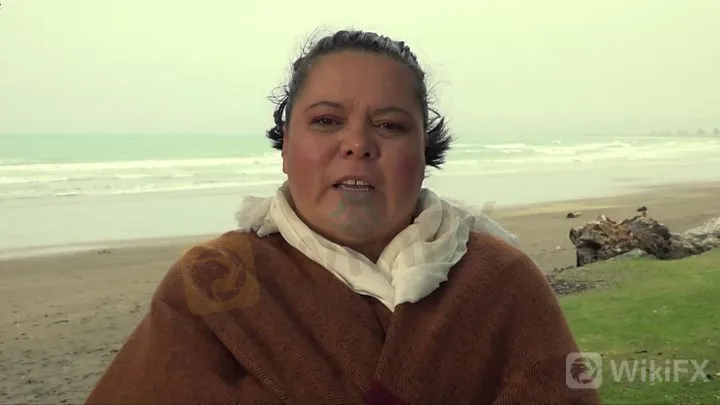简体中文
繁體中文
English
Pусский
日本語
ภาษาไทย
Tiếng Việt
Bahasa Indonesia
Español
हिन्दी
Filippiiniläinen
Français
Deutsch
Português
Türkçe
한국어
العربية
NZ anniversary: New Zealand divided over Cook's landing
Abstract:Image copyrightKerry MarshallImage caption Commemoration events kicked off on SaturdayNew Zealand is
Commemoration events kicked off on Saturday
New Zealand is marking a divisive anniversary - 250 years since the British explorer Captain James Cook set foot in the country.
Cook and his crew of the HMS Endeavour came to shore at Gisborne on 8 October 1769 ushering in colonial rule.
But New Zealand - or Aotearoa in Maori - had been populated by the Maori people for several hundred years.
Some say this milestone should not be celebrated as it had a detrimental impact on the Maori community.
Last week British High Commissioner Laura Clarke delivered a statement of regret to local tribes - known as iwi - over the death of nine indigenous people during the first meeting between Cook and the Maori. But she stopped short of issuing an apology.
Though James Cook's exploration of New Zealand dominates history books, Dutch navigator Abel Tasman was the first European to catch sight of it, in 1642.
Maori people from Polynesian islands are believed to have arrived in New Zealand hundreds of years prior to the first Europeans.
What celebrations are planned?
New Zealand has planned several days of events to mark the milestone of the first meeting between Maori and Europeans.
On Tuesday, a flotilla of ships including a replica of the Endeavour will reach Gisborne, a city on the east coast of North Island.
Along with the crowds and officials, hundreds of protesters are expected to be present. As the flotilla has travelled around the coast, some Maori tribes have refused to let it come to their shores.
Image copyrightScience Photo LibraryImage caption
Endeavour, the ship used by Captain James Cook during his great voyage of exploration of 1768- 1771
Prime Minister Jacinda Ardern will be present when the Endeavour docks in Poverty Bay.
Britain regrets Maori killings by Endeavour crew
The countries grappling with their European past
On Saturday, as she kicked off commemoration events, Ms Ardern called for a more open conversation about New Zealand's history.
“We were only really telling, I believe, 50% of the story, and not always telling it well,” she said.
New Zealand should continue to learn and tell the full story of its past, she added.
Why is the anniversary controversial?
When James Cook arrived on the Turanganui River, what is now Gisborne, the first encounter between his crew and the Maori inhabitants was deadly.
A leader of the Ngati Oneone group was immediately shot and killed after what is believed to be a misunderstanding over a ceremonial challenge. At least eight other Maori were killed.

Media playback is unsupported on your device
Media captionTina Ngata says Maori people are still suffering under the legacy of colonialism
Despite the statement of regret, many Maori rights advocates say not enough has been down to acknowledge what happened in those first few days of Cook's arrival.
“It's a commemoration or an anniversary of invasion and imperial expansion,” said Tina Ngata, an indigenous rights advocate who has been leading the opposition to the commemoration events.
Protesters also say their Maori ancestors were treated unfairly during the colonial era and that today, Maori communities face disproportionate levels of poverty, crime and discrimination as a result.
In Gisborne, a statue of Cook has been repeatedly defaced with graffiti and is to be replaced.
Disclaimer:
The views in this article only represent the author's personal views, and do not constitute investment advice on this platform. This platform does not guarantee the accuracy, completeness and timeliness of the information in the article, and will not be liable for any loss caused by the use of or reliance on the information in the article.
WikiFX Broker
Latest News
Good News Malaysia: Ready for 5% GDP Growth in 2025!
How to Automate Forex and Crypto Trading for Better Profits
Is the stronger dollar a threat to oil prices?
Rising Risk of Japan Intervening in the Yen's Exchange Rate
Standard Chartered Secures EU Crypto License in Luxembourg
How Far Will the Bond Market Decline?
U.S. to Auction $6.5 Billion in Bitcoin in 2025
Trading Lessons Inspired by Squid Game
Is Infinox a Safe Broker?
How Did the Dollar Become the "Dominant Currency"?
Currency Calculator






